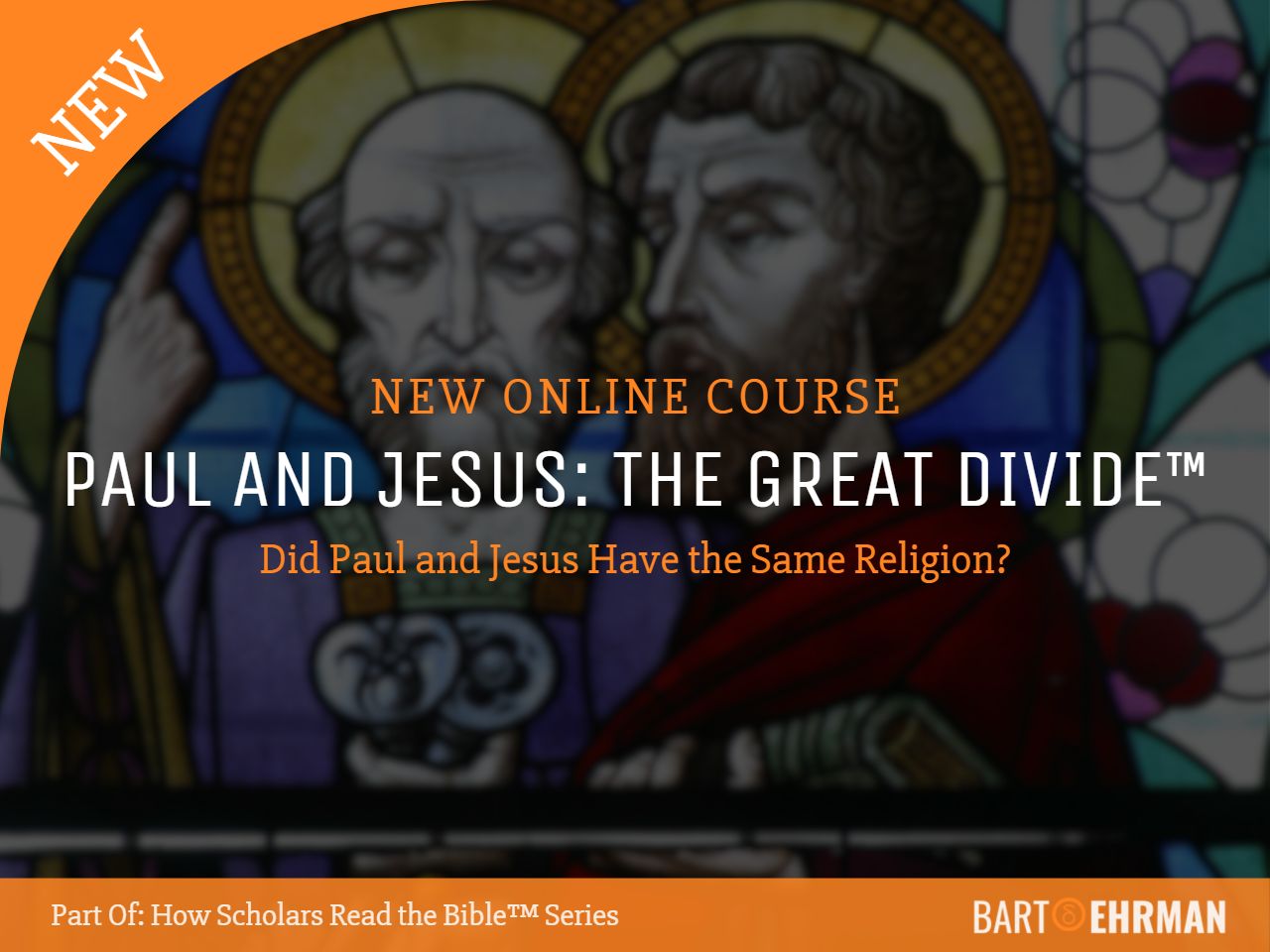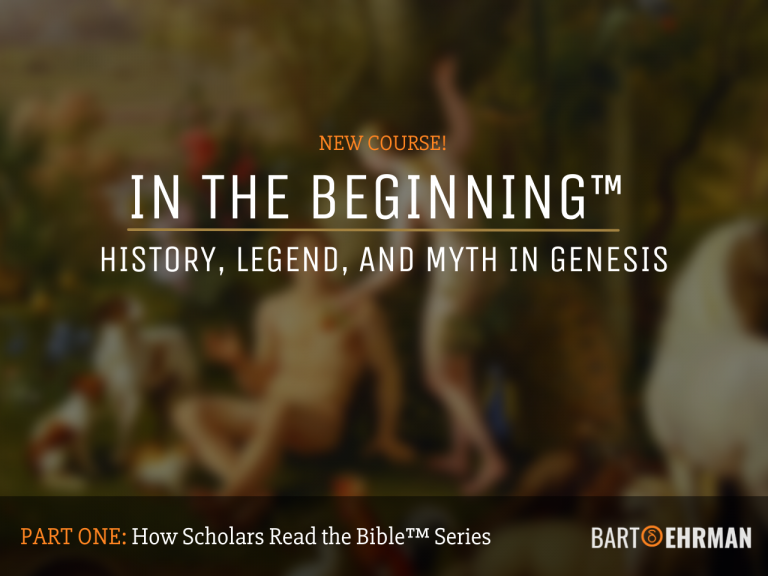Do Jews Believe in Jesus? Revealing Judaism’s Messiah

Written by Marko Marina, Ph.D.
Author | Historian
Author | Historian | BE Contributor
Verified! See our guidelines
Verified! See our editorial guidelines
Date written: October 31st, 2023
Disclaimer: The views and opinions expressed in this article belong to the author and do not necessarily match my own. - Dr. Bart D. Ehrman
For centuries, the story of Jesus of Nazareth shaped the religious and social landscape of our world, leading to a rift that continues to influence our lives today: the divide between Christianity and Judaism.
The origins of this divide go back to the first century when Jesus walked the dusty roads of Judea and Galilee. He was born into a Jewish family from Nazareth and raised within the framework of Judaism.
However, the path he took ultimately led to a profound schism within the Jewish community. We'll embark on a journey into the heart of this divide. We'll explore the historical roots of Christianity, the Jewish expectations surrounding the Messiah, and why Jesus was embraced as a savior by Christians and rejected as an imposter by most Jews.
Before we uncover whether Jews believe in Jesus, it’s important to describe the rise of the Messianic expectations within ancient Judaism.

Second Temple Judaism and the Messiah Expectations
Jesus lived within the period in Jewish history that scholars usually describe as the Second Temple Period (c. 516 B.C.E.-70. A.D.). Despite the promise that God gave Moses, for most of this period, the chosen people were subject to foreign rule. Since 63 B.C.E. when Pompey conquered Jerusalem, the Jewish people in Palestine were living under Roman rule.
Such a political outcome that lasted for centuries created a strong cognitive dissonance among the Jews. Based on the disparity between belief (Jews as God’s chosen people) and political reality (living under pagan rule), the idea of the Messiah was born. The assumption behind the idea was that the future would witness the rise of a great Messianic figure who would free the Jews and establish an independent kingdom.
The term “Messiah” comes from the Hebrew word "Mashiach" which means "anointed one" or "anointed one with oil." The Greek equivalent of the Hebrew "Mashiach” is "Χριστός" (Christos), which also means "anointed one". In other words, Christ is Jesus’ title, a proclamation that he is the long-expected Messiah.
The first mentions of the Messiah figure come from prophetic books of the Old Testament. 2 Samuel, for example, contains God's promise to King David that one of his descendants will establish an everlasting kingdom.
During the most of Second Temple period, however, messianism didn’t figure prominently. The absence, as John J. Collins explains, changed with the Book of Daniel and the rise of Jewish apocalyptic thought in the 2nd century B.C.E.
It’s important, however, to emphasize that ancient Judaism wasn’t a monolithic entity. Consequently, there was no single idea about the exact nature of the future Messiah.
In other words, Jewish apocalyptic thought was "stimulated" by the general image of a future savior who would establish the kingdom of God in Israel and elevate the Jewish state above all other empires in the world.
Who is the Messiah in Judaism? What kind of a savior will he be? As it turns out, Jewish texts reveal different ideas and beliefs!
#1 - Messiah as a royal figure and the future king of Israel
This was a common idea found within the Jewish texts of that period. Some of these texts even specified that the Messiah would be king from the line of David. Take, for instance, the Psalms of Solomon (1st century B.C.E.).
Written in reaction to Pompey's occupation and conquest of Jerusalem, the anonymous author describes the future day when David's anointed son will free his people from the enemy, restore the power of Jerusalem, and establish a just society. Other Jews, however, had a different picture of the future Messiah.
#2 - Messiah as a priestly figure who would restore the Temple
An apocryphal document Testaments of the Twelve Patriarchs predicts the future days when God will appoint a new priest who will rule over all of Israel. In this scenario, the Messiah acts like a priest by establishing proper worship of God, often in a new, more sacred Temple.
Furthermore, in the Dead Sea Scrolls, a collection of Jewish texts from the Second Temple period discovered in the mid-20th century, there is a text known as the Melchizedek Scroll. It speaks of a Messianic figure who is a priestly figure in the order of Melchizedek, an ancient priest-king mentioned in the Hebrew Bible.
#3 - More than one Messiah?
Since the Dead Sea Scrolls are a captivating collection of Jewish books, it doesn’t come as a surprise that we find different notions of Messiah figures within them.
In The New Testament, Dr. Ehrman notes that "some of the scrolls indicate that this kingdom would be ruled by two messiahs, one a king and the other a priest. The priestly messiah would lead the faithful in their worship of God in a purified temple, where sacrifices could again be made in accordance with God’s will."
#4 - Messiah as the Son of Man in the Book of Daniel
Probably the most famous Messiah figures appear in Daniel 7. The author reports a vision in which he sees God on his throne, preparing to judge all people. A beast that represents an evil earthly power is killed.
Then the author reports: “I sad one like a son of man coming with the clouds of heaven. And he came to the Ancient One and was presented before him. To him was given dominion and glory and kingship, that all people, nations, and languages should serve him. His dominion is an everlasting dominion that shall not pass away, and his kingship is one that shall never be destroyed (Daniel 7:13-14).”
In this interpretation, the Messiah is depicted as a cosmic (supernatural) deliverer from heaven, who would engage in supernatural warfare with the enemies of the Jews and bring a divine victory over their oppressors.
Whoever this figure from Daniel 7 was supposed to be, he became the model or paradigm for many subsequent Messiah figures in early Jewish literature. He is, therefore, sometimes referred to as the “Son of Man”.
Did You Know?
Appearances of new Messiah figures didn't stop after Jesus! Sabbatai Zvi was a 17th-century Jewish figure who gained a large following by claiming to be the Messiah. Sabbatai Zvi's proclamation led to a great deal of excitement and anticipation, but his eventual conversion to Islam disappointed many of his followers.
The point is that the concept of the Messiah in ancient Judaism was diverse, and different Jewish sects and traditions had their interpretations of the Messiah's role and attributes. However, as we shall see soon, the diversity has its limits!
Jesus of Nazareth and Early Messianic Claims
Most historians believe that Jesus was an apocalyptic prophet who proclaimed the arrival of the Kingdom of God. Around the year 30, the Romans crucified him.
After his death and based on the belief that God raised Jesus, some of his followers proclaimed that their leader was, in fact, God’s Messiah, the King of the Jews, and the Son of Man from Daniel 7. In the Gospel of Matthew, for example, Jesus asks his disciples who they believe he is. Peter responds with an explicit declaration: "You are the Messiah, the Son of the living God (Mt 16:16)."
Furthermore, early Christians claimed that Jesus would soon arrive on the clouds of heaven bringing the final Judgment and the establishment of God’s kingdom on Earth.
The apostle Paul, for instance, assures his readers in Thessalonica: “For the Lord himself will come down from heaven, with a loud command, with the voice of the archangel and with the trumpet call of God, and the dead in Christ will rise first. After that, we who are still alive and are left will be caught up together with them in the clouds to meet the Lord in the air (1 Thess 5:13-16).
Even though the Old Testament was originally the Scripture of the Jewish people, most early Christians accepted it as part of their Scripture.
Not only that! Christians believe in the Old Testament. Already in the earliest texts such as Paul's epistles and the four canonical Gospels, Christians expressed their belief that the Old Testament contains prophecies about Jesus. In other words, they believed that the Messiah Jesus fulfilled the Old Testament prophecies.
Take, for instance, the famous passage from Isaiah: “He was despised and rejected by mankind, a man of suffering, and familiar with pain. Like one from whom people hide their faces he was despised, and we held him in low esteem... But he was pierced for our transgressions, he was crushed for our iniquities; the punishment that brought us peace was on him, and by his wounds, we are healed (Isaiah 53:3-5).”
Most critical scholars today, however, recognize that the original meaning of Isaiah 53 has nothing to do with the concept of Messiah. To learn more about it, check out Dr. Ehrman’s excellent blog post!
Armed with the belief in a resurrected Jesus whose Messianic identity was predicted by the Old Testament prophets, the first Christians spread the new faith around the Mediterranean world. Already by the middle of the 1st century, the good news reached Rome.
But the message of the resurrected Messiah was first conveyed to the Jews in Palestine. After all, Jesus’ disciples were all Jews living in Judea and Galilee. It was only natural to transmit new beliefs about Jesus and salvation to their fellow countryman. However, most of them weren’t pleased with the news they heard.
“You are not the Messiah”: Jewish Rejection of Jesus
In his Epistle to Corinthians, Paul stated that the first followers of Jesus preached “about a crucified Christ, a stumbling block to Jews.” But why didn’t most Jews believe in Christ? How to comprehend the concept of Messiah in Judaism vs. Christianity? The only way is to look at the Christian message from the Jewish perspective.
Despite the differences in Jewish Messianic expectations, one thing was certain: A Messiah is going to be a great figure of triumph and victory.
In Jesus: Apocalyptic Prophet of New Millenium, Dr. Ehrman notes that “prior to the Christian proclamation of Jesus, there were no Jews, at least so far as we know, who believed that the Messiah was going to be crucified. On the contrary, the Messiah was to be the great and powerful leader who delivered Israel from its oppressive overlords.”
And who was Jesus? He was, from a historical point of view, a crucified criminal who died in a most humiliating way. Consequently, a rapture between early followers of Jesus and the rest of the Jewish community emerged. It started a process that scholars often call the “Parting of the Ways” between Judaism and Christianity.
There were, however, some Jews who believed in Jesus. The Ebionites are an excellent example. They were a Jewish Christian sect that originated probably among the early Jewish followers of Jesus in Jerusalem.
Like other early Christians, the Ebionites believed that Jesus was the Messiah promised in Jewish scripture. However, they had a unique understanding of Jesus. They saw him as a human prophet and Messiah, rather than a divine figure.
Eventually, the proto-orthodox Church marginalized Ebionites who became only a “heretical” footnote in the history of Christianity. If you want to know more about it, check out Dr. Ehrman’s bestseller Lost Christianities!

Still Rejected: Jesus in the Later Rabbinic Sources
With the fall of Jerusalem in 70 C.E. everything changed. The Jewish history reached a new breakpoint. The subsequent defeat by the Roman forces (135 C.E.) and the deportation of Jews from Palestine represented the ultimate end of the Second Temple Period.
Consequently, Rabbinic Judaism emerged as the dominant force within the Jewish religious tradition. But the view on Jesus didn’t change. Most Jews still rejected the idea that the crucified criminal who was probably born in Nazareth was a true Messiah and a Savior.
The Talmud - a collection of Jewish texts that originated within the Rabbinic movement, mentions Jesus a couple of times. He is depicted as a sorcerer or the son of an adulteress, and the Roman soldier Panthera.
This tradition was probably a Jewish polemical attack on the Christian belief that Jesus was the son of a virgin (Παρθένος). Moreover, the punch line of this attribution, as Peter Schäfer notes, is the “fact that Jesus, through his father Panthera becomes not only a bastard but even the son of a non-Jew.”
When will the Messiah come? Rabbinic Jews still maintain the belief in a future Messiah to usher in a period of ultimate redemption, but the exact time of his arrival is unknown. His exact identity is also a mystery. Different streams within the Rabbinic tradition give different answers. But they all agree on one thing: Jesus of Nazareth is not the Messiah!
Summing up Conclusion
The question of "Do Jews believe in Jesus?" emerges as a pivotal point of distinction between two religious traditions. The rejection of Jesus by the majority of the Jewish community, epitomized by his crucifixion, was rooted in the fundamental disparity between their understanding of the Messiah and the reality of Jesus' life and death.
History is full of paradoxes. And is there a greater paradox than the fact that Jesus, despite his Jewish identity and message, was rejected by the majority of Jews? Unfortunately, this rejection also stipulated the rise of early Christian anti-semitism that was carried through the Middle Ages to the 20th century.
In the end, the enduring legacy of this divide underscores the richness and complexity of religious traditions and the profound influence of Christianity on our world. To know more about the two most important figures of Christianity (Jesus and Paul), I invite you to join Dr. Ehrman’s captivating course "Paul and Jesus: The Great Divide". Click the link below and embark on this fascinating journey to the origin of Christianity!


